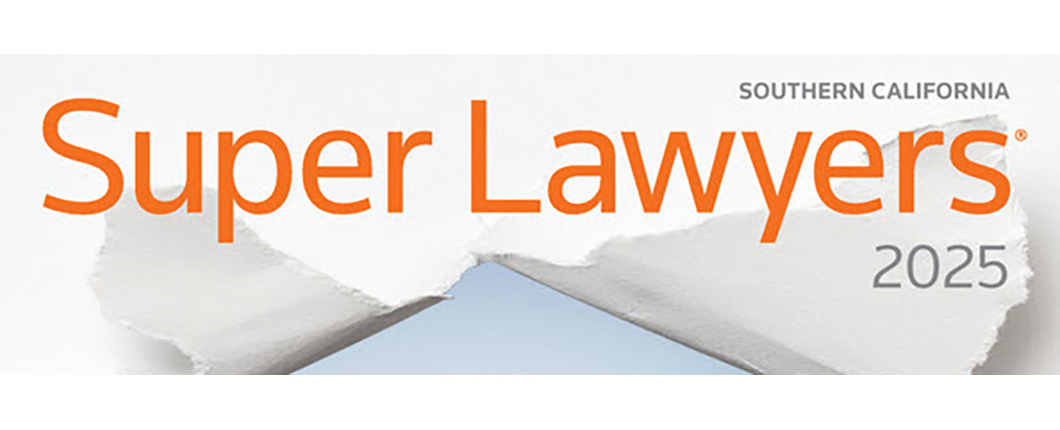
Trust Administration Series: Part 3 of 3
In Part 1 of 3 of this Trust Administration Series, we covered the trustee’s duties, liabilities, and trust administration checklist. In Part 2 of 3 of this Trust Administration Series, we learned about the common subtrust structures of a family trust. This last section of our three-part Trust Administration Series details the steps and considerations for allocating assets of the family trust among the subtrusts.
Subtrust Allocation Considerations
Determine allocation formulas. A subtrust funding formula clause directs the trustee how to allocate the deceased spouse’s interest in the trust estate between the Marital Trust and Bypass Trust to optimize the use of the marital deduction and the deceased spouse’s available estate tax exemption. The type of formula clause used for purposes of subtrust allocation affects the allocation of the assets’ appreciation and depreciation between the subtrusts and the income tax consequences on such assets.
There are generally three types of formula clauses:
(a) Pecuniary marital/residuary credit formula
(b) Pecuniary credit/residuary marital formula
(c) Fractional share formula
In a pecuniary marital/residuary credit formula, the value of assets allocated to the Marital Trust that would qualify for the marital deduction is calculated in terms of a dollar amount based on date-of-death values for federal estate tax purposes. The value of assets allocated to the Bypass Trust consists of the remaining balance (the “residue”) of the deceased spouse’s interest in the trust estate. Post-death appreciation on assets is shifted to the residuary Bypass Trust. It is important that the assets used to fund the pecuniary Marital Trust is cash versus in-kind to avoid the triggering of capital gains tax. When the Marital Trust is funded with assets in-kind and there is appreciation on these assets between the date of death and date of funding, capital gains tax may be incurred.
In a pecuniary credit/residuary marital formula, the value of assets allocated to the Bypass Trust is calculated in terms of a pecuniary amount based on date-of-death values for federal estate tax purposes, and the value of assets allocated to the Marital Trust consists of the residue of the deceased spouse’s interest in the trust estate. Similarly, any in-kind assets used to fund the pecuniary Bypass Trust may trigger a capital gains tax on the date of funding if there is appreciation on the assets between date of death and date of funding; and post-death appreciation on the assets of the deceased spouse’s interest in the trust estate is shifted to the residuary Marital Trust. The downside of the pecuniary credit/residuary marital formula is that it risks exposing the surviving spouse to a taxable estate. This is because assets of the Marital Trust, which absorb the appreciation of the deceased spouse’s interest in the trust estate, will be included in the surviving spouse’s estate.
In a fractional share formula, the deceased spouse’s interest in the trust estate is allocated between the Bypass Trust and Marital Trust by percentage or fractional shares rather than a dollar amount, and in this case, there are no capital gains tax consequences on the allocation of appreciated in-kind assets.
Item vs. aggregate theory. The provisions of a marital agreement between spouses may instruct the division of community property between spouses based on either an “aggregate theory” or “item theory.” Usually, a division of community property based on aggregate theory makes it easier to allocate assets between subtrusts. With aggregate theory, community property is divided between spouses based on the aggregate value of the community property, and certain assets may be entirely allocated to one spouse’s one-half share of the community property so long as the total value of such assets allocated to one spouse is equal to one-half of the aggregate value of community property. Quite often, the marital agreement will have an aggregate theory on the division of community property assets. When the division of community property is based on item theory, on the other hand, the value of each item (ownership interest in the house, bank account, etc.) in the community property must be divided equally between spouses, which is likely to be impractical.
As it relates to trust administration, if the marital agreement provides an aggregate theory of division of community property, then the allocation of assets between the surviving spouse’s interest in the community trust estate and the deceased spouse’s interest in the community trust estate would be administratively convenient.
If, for example, the community trust estate in the aggregate is valued at $2 million, of which $1 million is the family home and $1 million is the family investment account, then under an aggregate theory of division, we may allocate the $1 million family home to the Survivor’s Trust comprising of the surviving spouse’s one-half share of the community trust estate. And, the $1 million of the family investment account goes to the Bypass Trust comprising of the deceased spouse’s one-half share of the community trust estate. In doing so, the surviving spouse may benefit from a $250,000 capital gains tax exclusion under Section 121 of the Internal Revenue Code if he or she were to decide to sell the family home during his or her lifetime. If the surviving spouse kept the family residence in the Survivor’s Trust until death, the children who would inherit the residence would benefit from a stepped-up basis that would minimize their capital gains tax should they decide to sell the residence in the future following the surviving spouse’s death. These income tax benefits would not be available if the family home were allocated to the Bypass Trust.
Longevity of survivor and liquidity needs. When allocating assets between the Survivor’s Trust, Bypass Trust, and Marital Trust, the trustee needs to ensure that the Survivor’s Trust, in which the surviving spouse has unrestricted access to income and principal, and the Marital Trust, in which the surviving spouse is entitled to distributions of all net income, have sufficient liquidity to meet the surviving spouse’s needs and that these allocated assets are income-producing.
Anticipated appreciation. Generally, assets that are likely to significantly appreciate in the future are allocated to the Bypass Trust so that the value of these assets and their future appreciation are excluded from the surviving spouse’s estate to minimize the likelihood of a taxable estate on the surviving spouse’s death.
Fractionalizing for discounts. The trustee may wish to consider allocating fractional interests in certain assets between subtrusts, such as the allocation of fractional interests in family-owned businesses, to take advantage of fractional discounts on the valuation of these interests for estate tax purposes. This strategy maximizes the use of the deceased spouse’s estate tax exemption amount on the first death and the surviving spouse’s estate tax exemption amount that may be applied toward future transfers.
Ease of administration and lifetime gifting for the surviving spouse. In certain situations, where complete flexibility, control and management of a particular asset is necessary during the surviving spouse’s lifetime due to changing needs and circumstances of the family, it may be best to allocate such asset to the Survivor’s Trust so that the surviving spouse, who may also be acting as trustee of the subtrusts, has unrestricted powers to sell, exchange, distribute, gift and otherwise manage and administer such asset however he or she wishes without concerns of breaches of fiduciary duties to the remainder beneficiaries. The flexibility, control and management desired would not be present if such asset were allocated to the Bypass Trust.
Preparation Is Key in Trust Administration
Trust administration upon the death of a spouse involves a lot of rules and considerations; ones that must be fully understood by the trustee in order to properly meet the trustee’s fiduciary duties and manage the trust in the best interest of all beneficiaries. It is vital for the trustee to understand when and how to fund subtrusts, the associated tax consequences, and the proper order in which the steps of a trust administration must be taken.
Jacqueline Yu is a trust administration attorney in California. Contact her to discuss your questions and concerns around naming a trustee, being designated as a trustee, or beginning the process of trust administration by sending an email to info@jacquelineyulaw.com or calling 310-313-1195.


